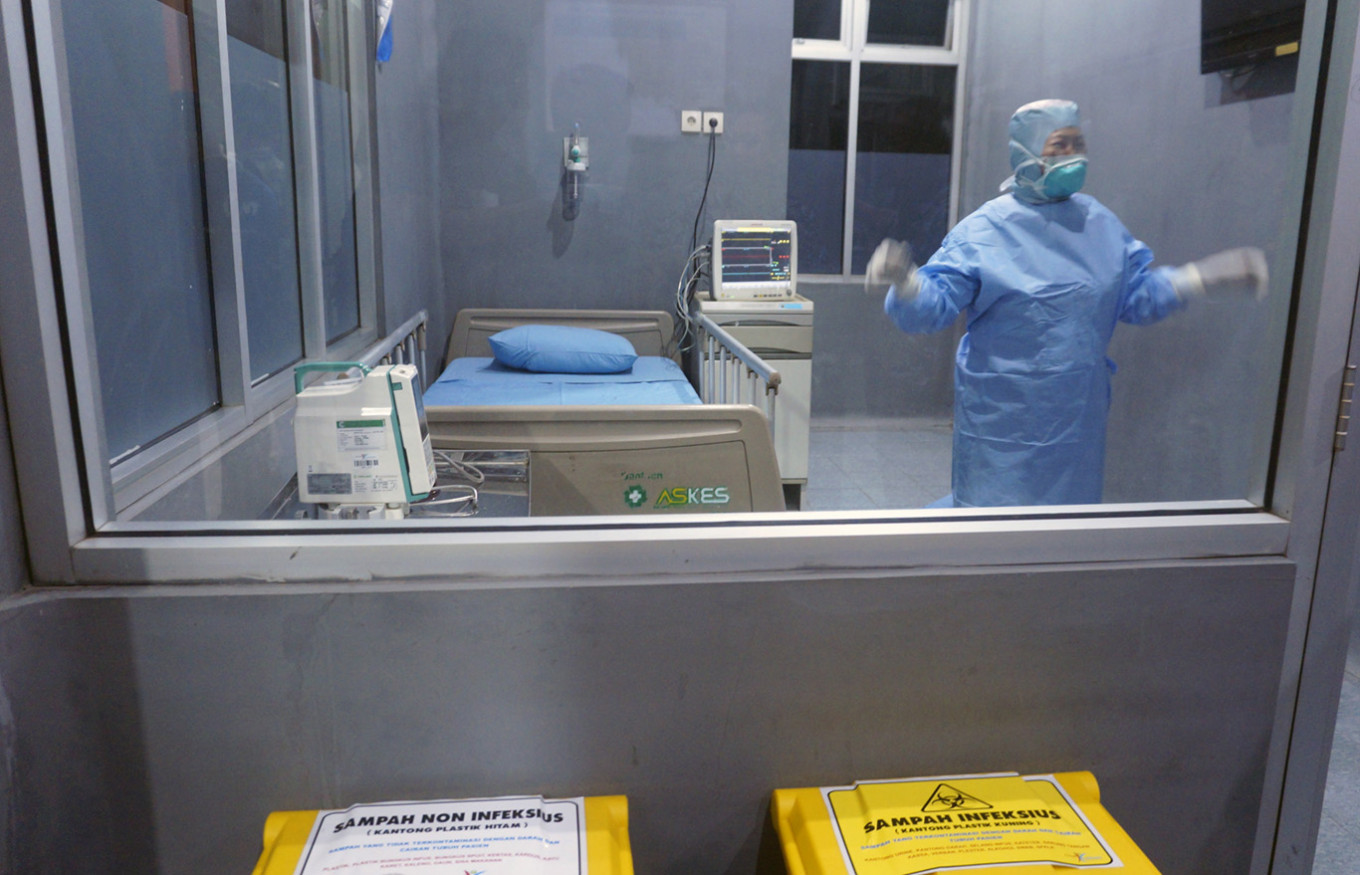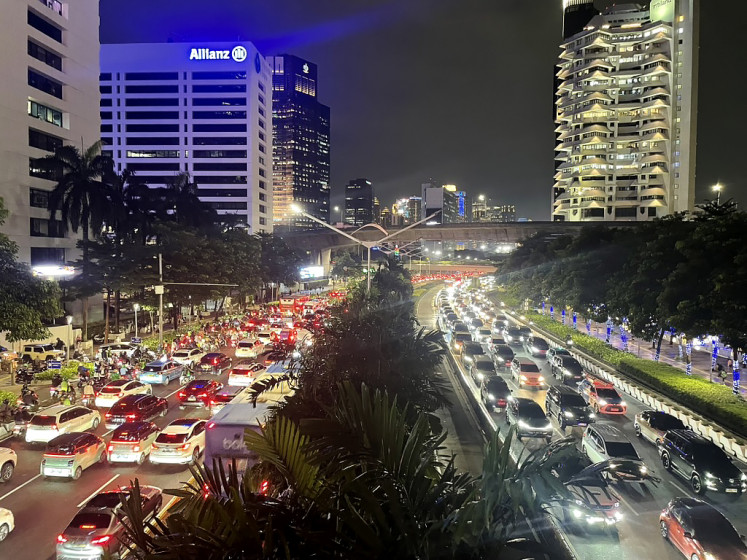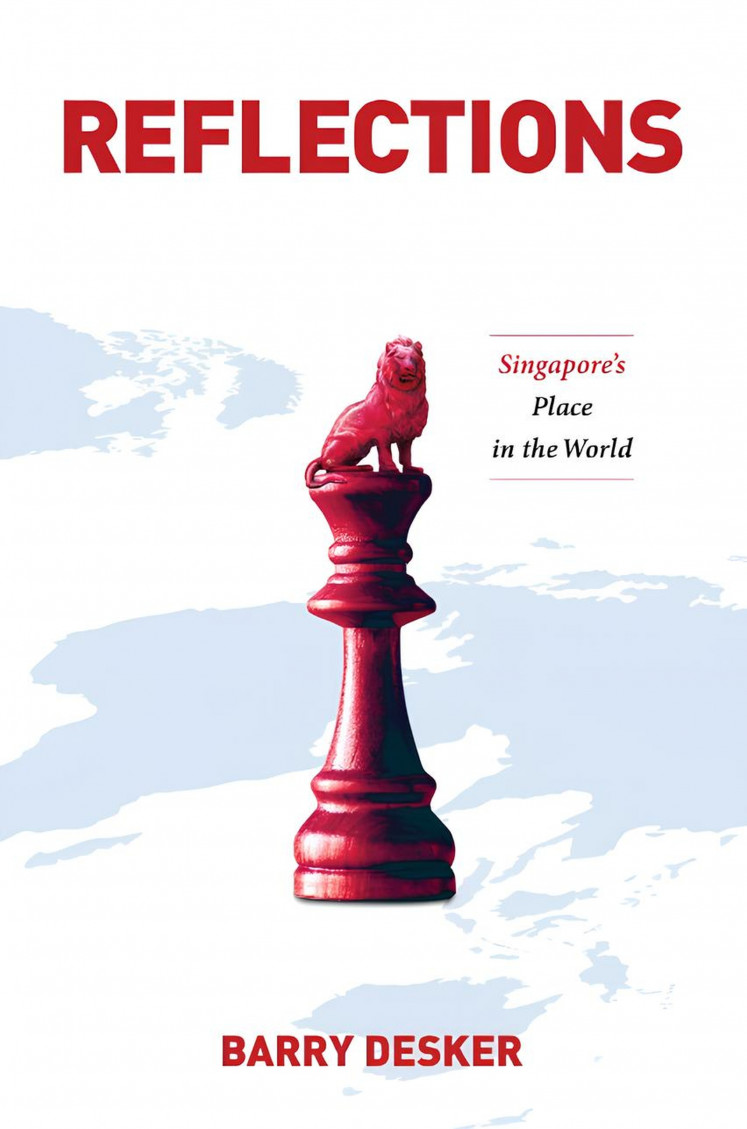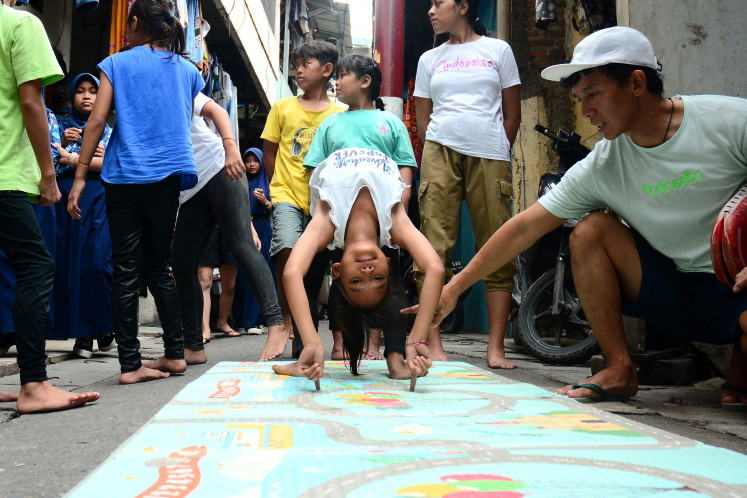Popular Reads
Top Results
Can't find what you're looking for?
View all search resultsPopular Reads
Top Results
Can't find what you're looking for?
View all search resultsScientists urged to carry out further research on antimalarial drug to cure COVID-19
Research in China has suggested that chloroquine phosphate, a derivative substance from quinine, has a curative effect on COVID-19.
Change text size
Gift Premium Articles
to Anyone
 Medical officers check a special isolation room to treat patients with severe pneumonia due to the novel coronavirus outbreak at Kraton General Hospital, Pekalongan, Central Java, Wednesday. The Pekalongan regency government together with the Kraton General Hospital prepared a number of isolation rooms and a special medical team consisting of 12 general practitioners, 24 nurses and pulmonary specialists, along with internal medicine specialists. (Antara/Harviyan Perdana Putr)
Medical officers check a special isolation room to treat patients with severe pneumonia due to the novel coronavirus outbreak at Kraton General Hospital, Pekalongan, Central Java, Wednesday. The Pekalongan regency government together with the Kraton General Hospital prepared a number of isolation rooms and a special medical team consisting of 12 general practitioners, 24 nurses and pulmonary specialists, along with internal medicine specialists. (Antara/Harviyan Perdana Putr)
A
pharmacologist from Bandung’s Padjajaran University in West Java has called for Indonesian scientists to carry out further studies on the efficacy of chloroquine phosphate, an antimalarial drug, to be a possible cure for coronavirus disease (COVID-19).
Keri Lestari, a professor at the university’s pharmacology and clinical pharmacy department, said research in China had suggested that chloroquine phosphate, a derivative substance from quinine — a component extracted from the bark of a cinchona tree commonly cultivated in West Java — had a curative effect on COVID-19.
"Scientists have tested thousands of medicines, some showing promising results [to cure COVID-19], one of them is chloroquine phosphate," she told The Jakarta Post on Thursday.
West Java Governor Ridwan Kamil has also urged universities to carry out further studies on the potency of chloroquine phosphate to cure coronavirus, which on Wednesday was declared a global pandemic by the World Health Organization (WHO).
Read also: Govt to involve universities, medical experts in fight against COVID-19: Moeldoko
Keri explained that research into chloroquine phosphate as a cure for COVID-19 needed to be done in a laboratory with level-III bio safety standards.
"Such lab standards are necessary in conducting research on infectious diseases. Padjadjaran University, Airlangga University in Surabaya, East Java and the Bogor Agricultural University in West Java have laboratories with such standards,” she said.
Under normal circumstances, she said, such research would take a long time because researchers needed to carry out clinical trials. But to prevent the spread of the coronavirus, researchers in Indonesia could use prior research conducted by Chinese experts.
"China had conducted a toxicity study as well, so we only need to find the substance effectivity to [kill] coronavirus. We don't need to start from zero," she said, adding that the country already had a Tea and Quinine Research Center in Ciwidey, West Java.
Read also: How bioinformatics bolster the fight against the coronavirus
The cultivation of quinine in Indonesia, especially on the island of Java, was pioneered in 1855 by Frans Wilhem Junghuhn, a German-Dutch botanist and geologist. Haryanto Kunto, the author of Semerbang Bunga in Bandung Raya, said Junghuhn had increased the number of quinine plants in Java from 167 to 1.3 million in six-and-a-half years.
Since then until World War II broke out, Indonesia supplied 90 percent of the world's quinine powder, producing 11,000-12,400 dry cinchona bark every year.
However, the West Java Plantation Agency recorded that cinchona plantations had continuously decreased in recent years. In 2017, West Java had 1,112 hectares of cinchona plantations producing 239 tons of quinine each year. While in 2013, cinchona plantations in West Java were recorded at 1,147 hectares with a production capacity of 285 tons. (nal)










